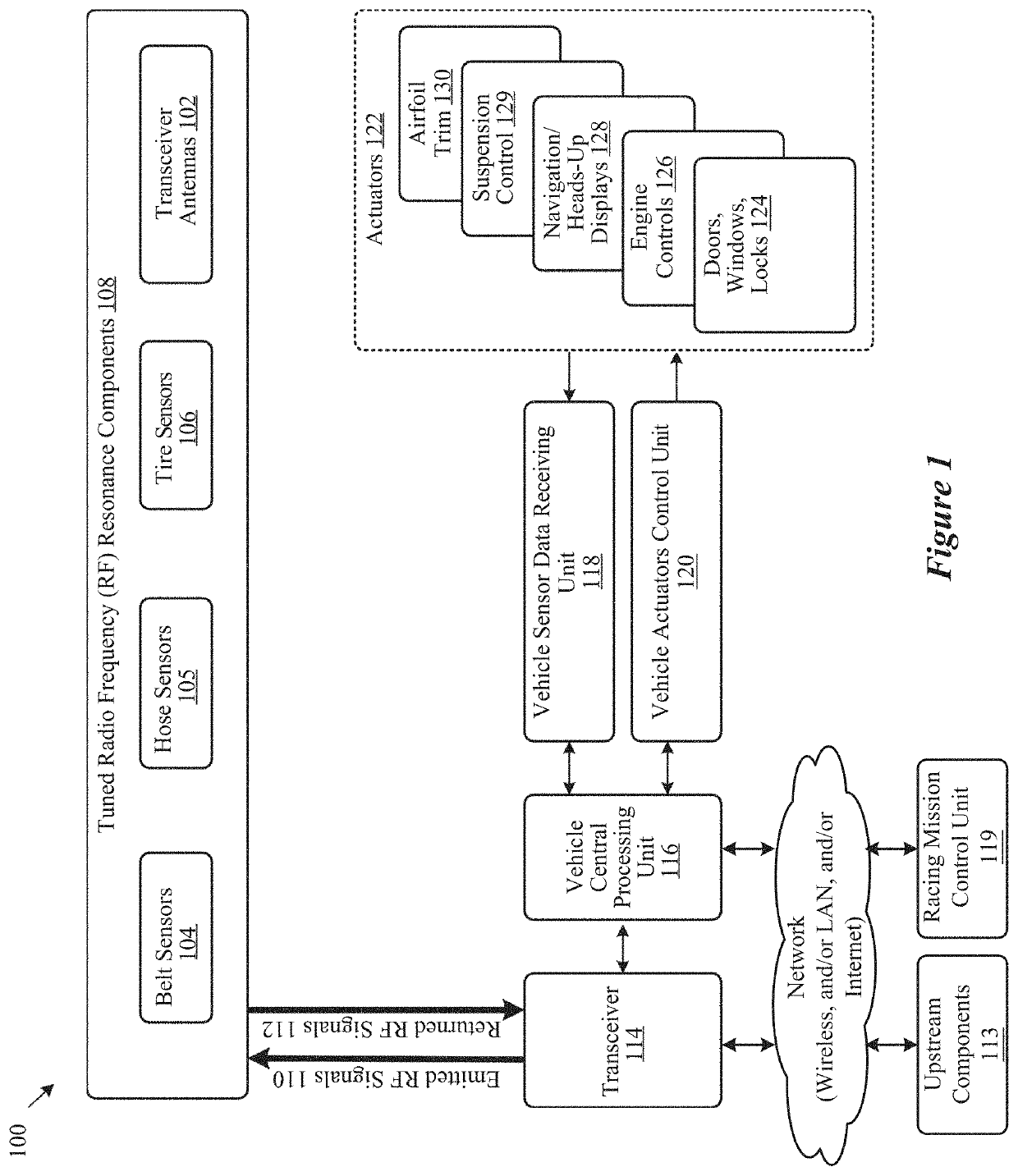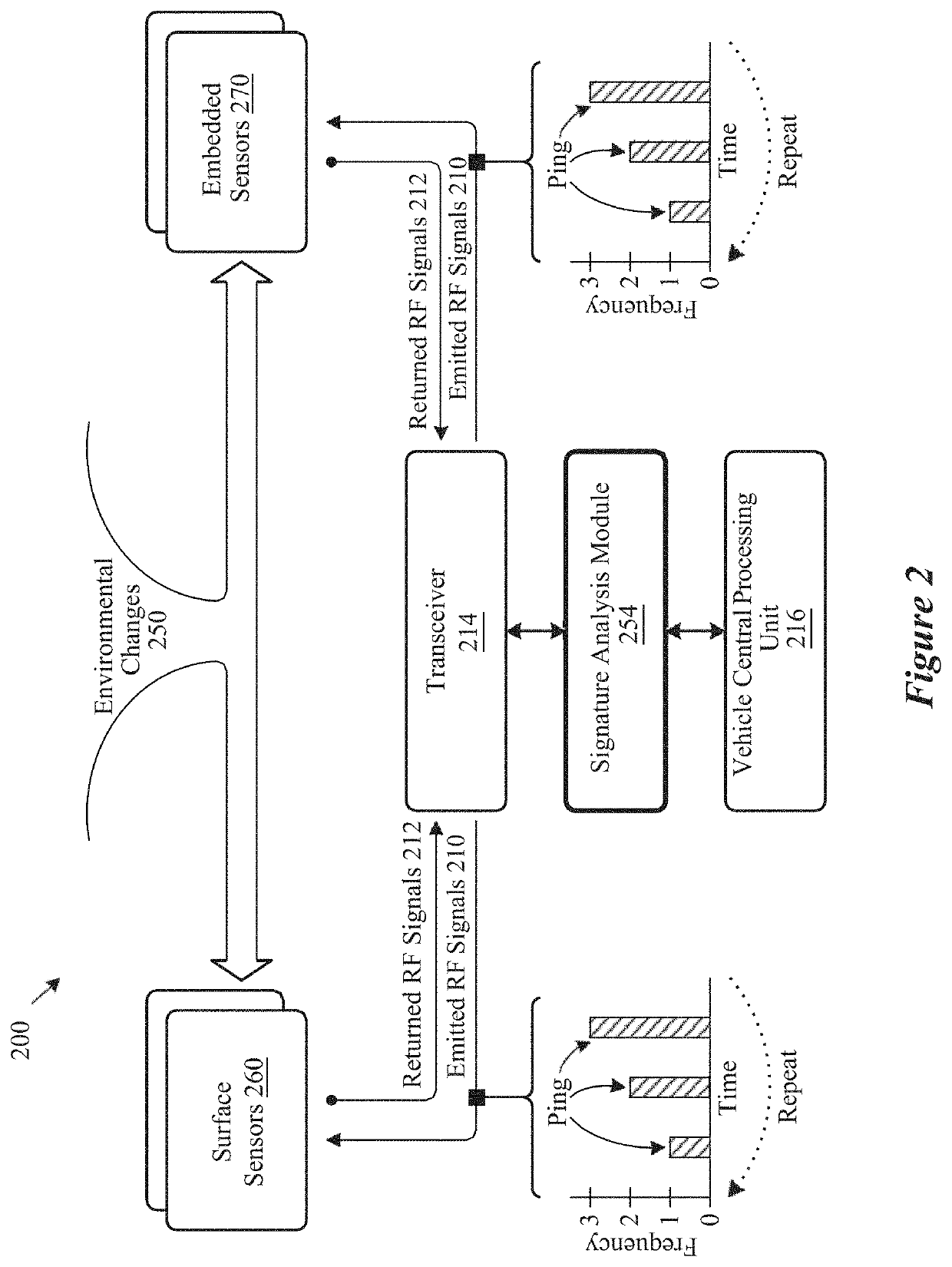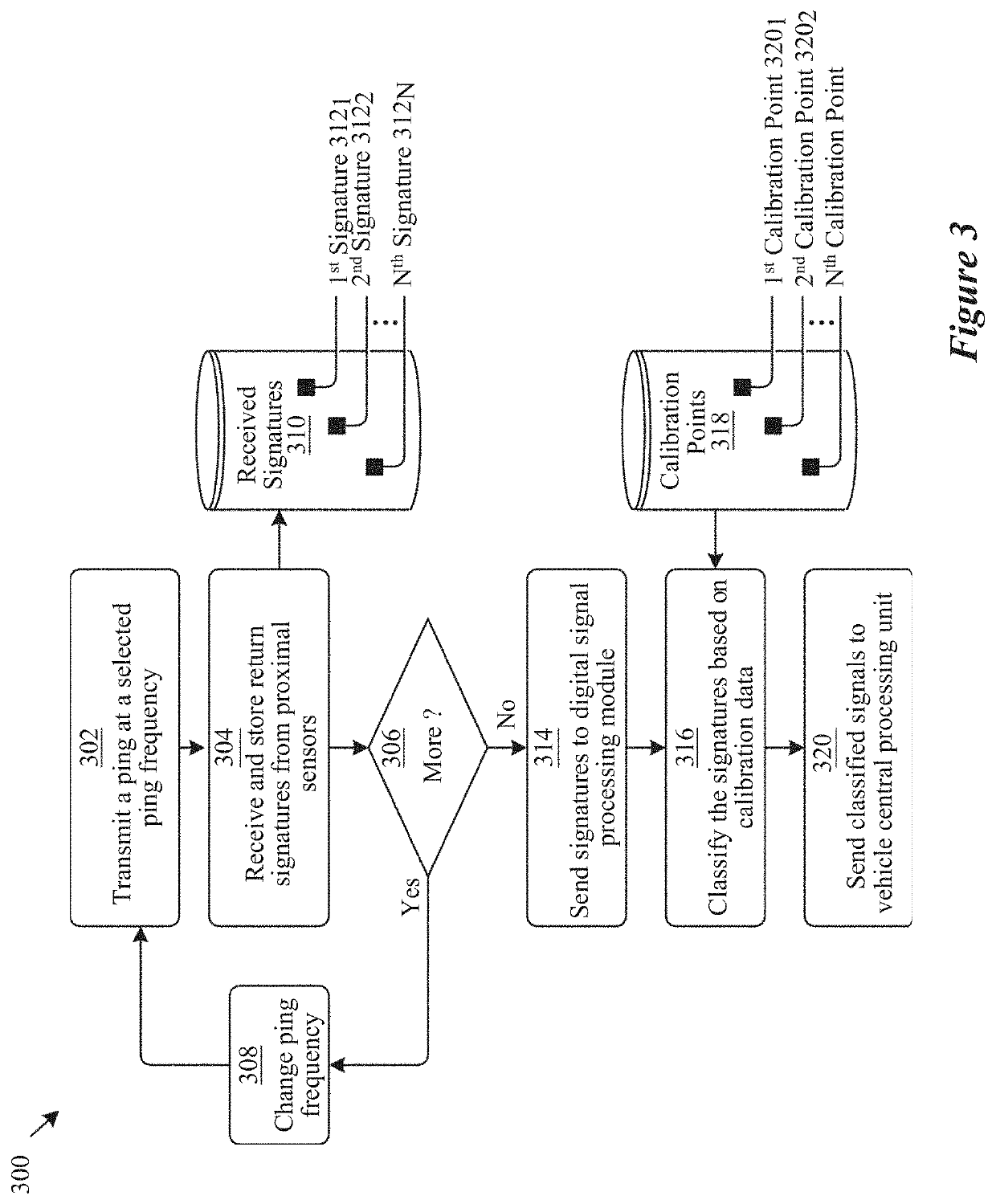Systems for detecting physical property changes in an elastomeric material
- Summary
- Abstract
- Description
- Claims
- Application Information
AI Technical Summary
Benefits of technology
Problems solved by technology
Method used
Image
Examples
example 1
[0174]FIG. 18G (shown enlarged as FIG. 15), FIG. 18H (shown enlarged as FIG. 16) and FIG. 18I (shown enlarged as FIG. 17) show TEM images of as-synthesized carbon nanoparticles of this example. The carbon nanoparticles contain connected multi-walled spherical fullerenes (MWSFs) with layers of graphene coating the connected MWSFs. The ratio of multi-walled fullerenes to graphene allotropes in this example is approximately 30% due to the relatively long resonance times allowing thicker, or more, layers of graphene to coat the MWSFs. No catalyst was used in this process, and therefore, there is no central seed containing contaminants. The as-synthesized aggregate particles produced in this example had particle sizes of approximately 10 μm to 500 μm. FIG. 18J shows a Raman spectrum from the aggregates of this example. The Raman signature of the as-synthesized particles in this example is indicative of the thicker graphene layers which coat the MWSFs in the as-synthesized material. Addit...
example 2
[0175]FIG. 18K and FIG. 18L show TEM images of the carbon nanoparticles of this example. Specifically, the images depict the carbon nanoparticles after performance of size reduction by grinding in a ball mill. The size reduction process conditions were the same as those described as pertains to the foregoing FIG. 18G through FIG. 18J. After size reduction, the aggregate particles produced in this example had a particle size of approximately 1 μm to 5 μm. The TEM images show that the connected MWSFs that were buried in the graphene coating can be observed after size reduction. FIG. 18M shows a Raman spectrum from the aggregates of this example after size reduction taken with 532 nm incident light. The ID / IG for the aggregate particles in this example after size reduction is approximately 1, indicating that the connected MWSFs that were buried in the graphene coating as-synthesized had become detectable in Raman after size reduction, and were well ordered. The particles after size red...
example 3
[0176]FIG. 18N is a scanning electron microscope (SEM) image of carbon aggregates showing the graphite and graphene allotropes at a first magnification. FIG. 18O is a SEM image of carbon aggregates showing the graphite and graphene allotropes at a second magnification. The layered graphene is clearly shown within the distortion (wrinkles) of the carbon. The 3D structure of the carbon allotropes is also visible.
[0177]The particle size distribution of the carbon particles of FIG. 18N and FIG. 18O is shown in FIG. 18P. The mass basis cumulative particle size distribution 1806 corresponds to the left y-axis in the graph (Q3(x) [%]). The histogram of the mass particle size distribution 1808 corresponds to the right axis in the graph (dQ3(x) [%]). The median particle size is approximately 33 μm. The 10th percentile particle size is approximately 9 μm, and the 90th percentile particle size is approximately 103 μm. The mass density of the particles is approximately 10 g / L.
PUM
 Login to View More
Login to View More Abstract
Description
Claims
Application Information
 Login to View More
Login to View More - R&D
- Intellectual Property
- Life Sciences
- Materials
- Tech Scout
- Unparalleled Data Quality
- Higher Quality Content
- 60% Fewer Hallucinations
Browse by: Latest US Patents, China's latest patents, Technical Efficacy Thesaurus, Application Domain, Technology Topic, Popular Technical Reports.
© 2025 PatSnap. All rights reserved.Legal|Privacy policy|Modern Slavery Act Transparency Statement|Sitemap|About US| Contact US: help@patsnap.com



